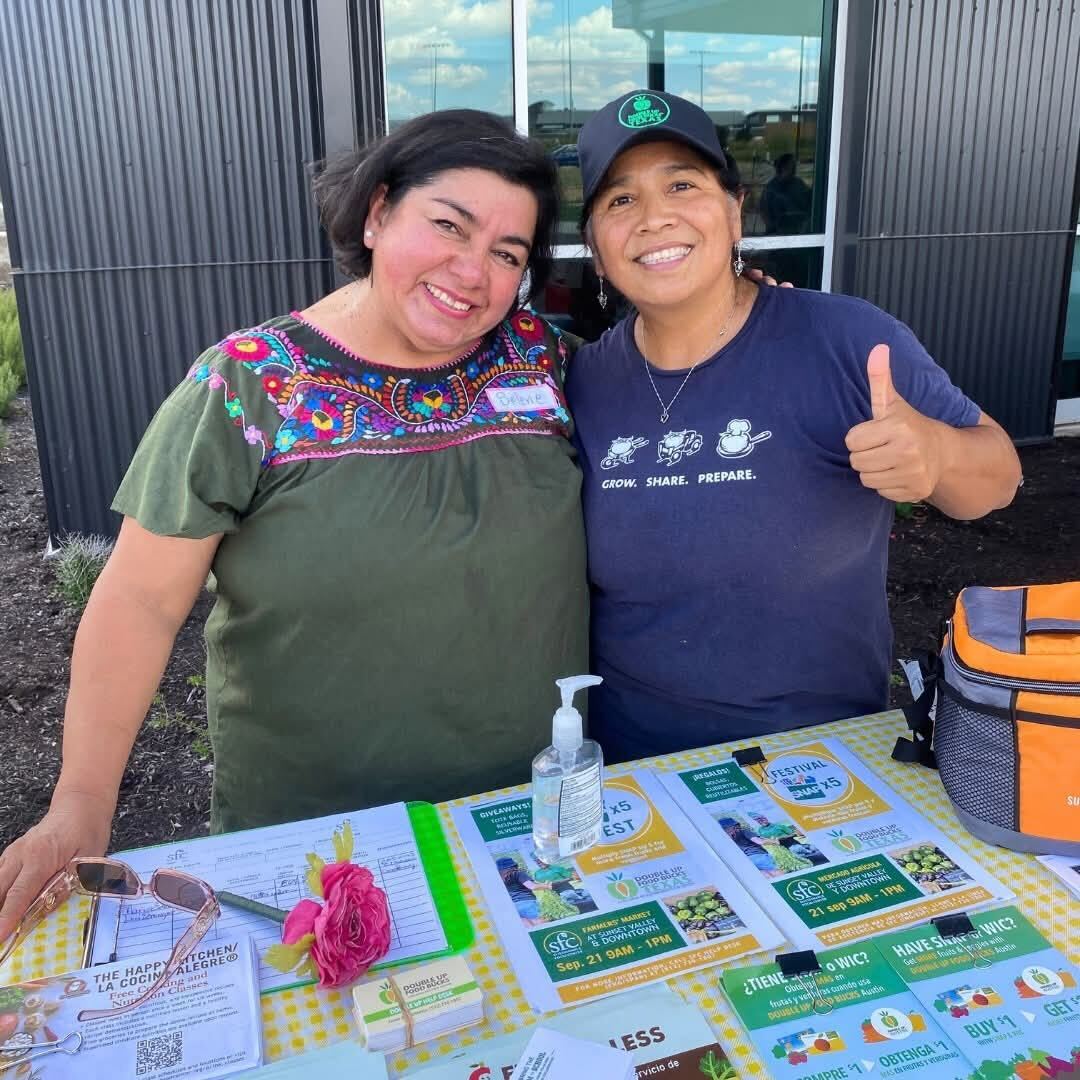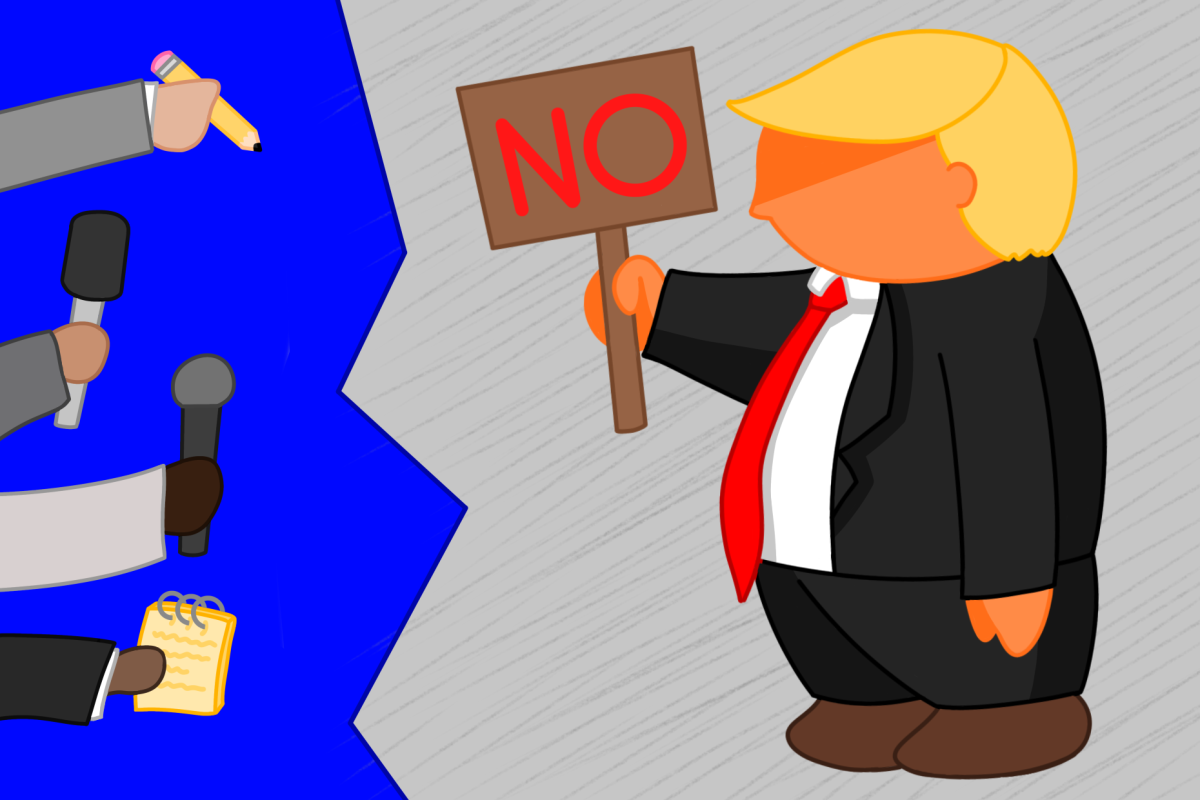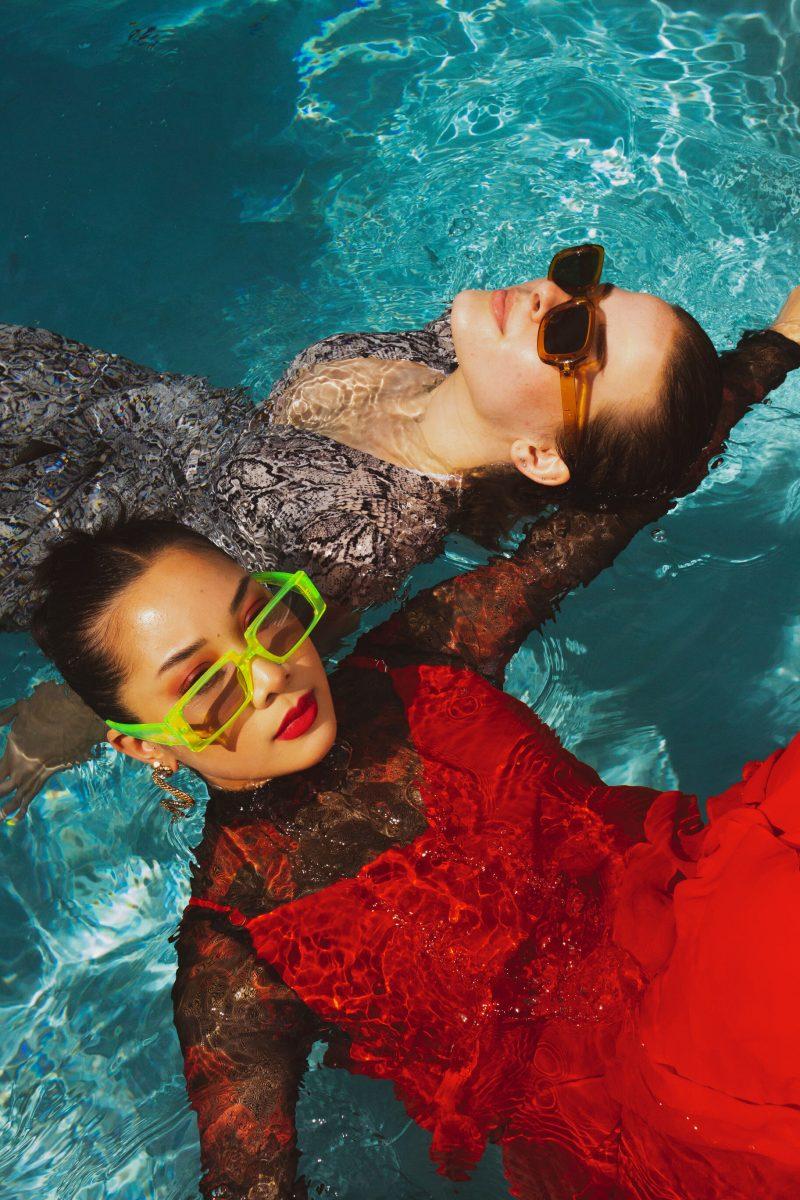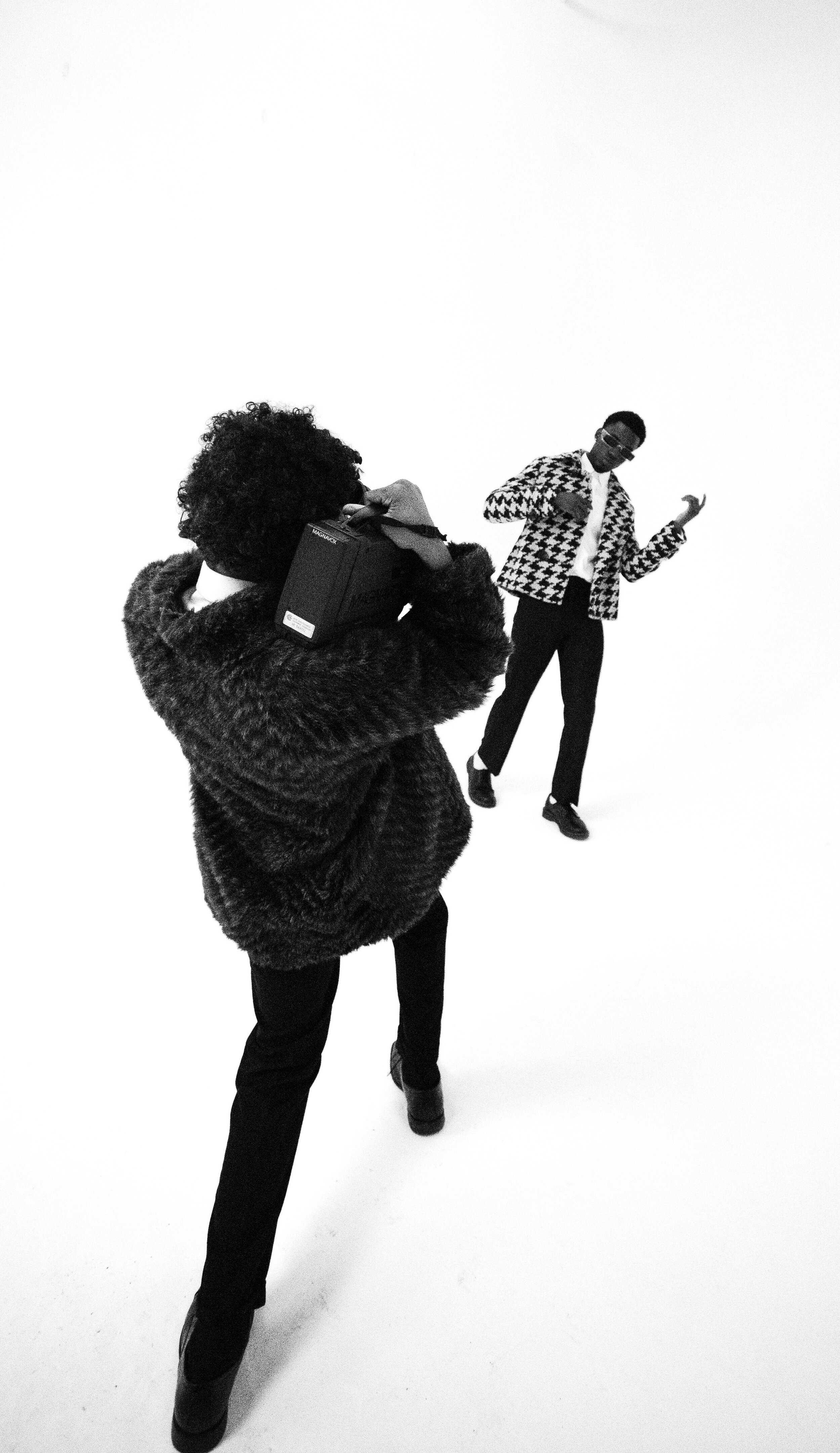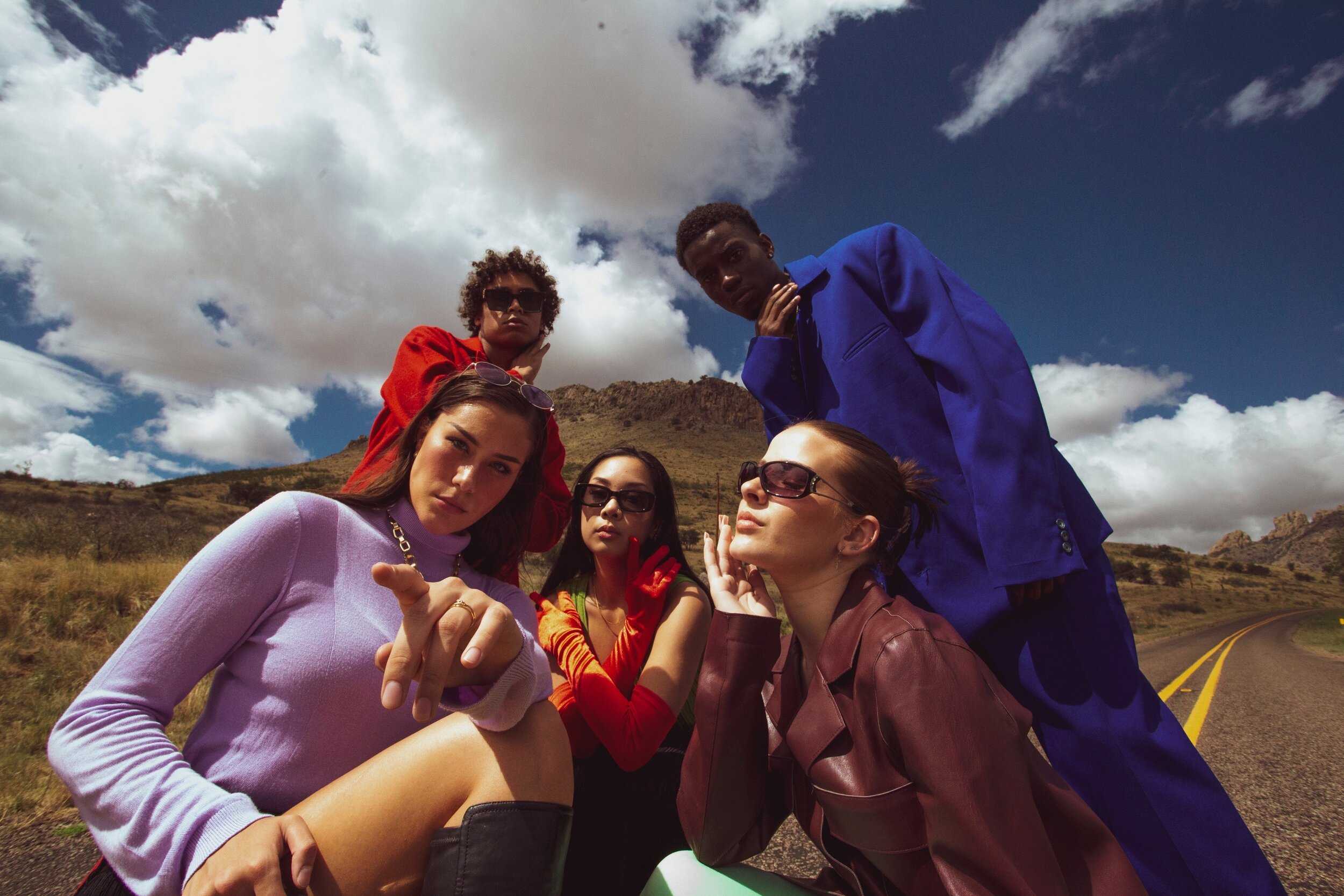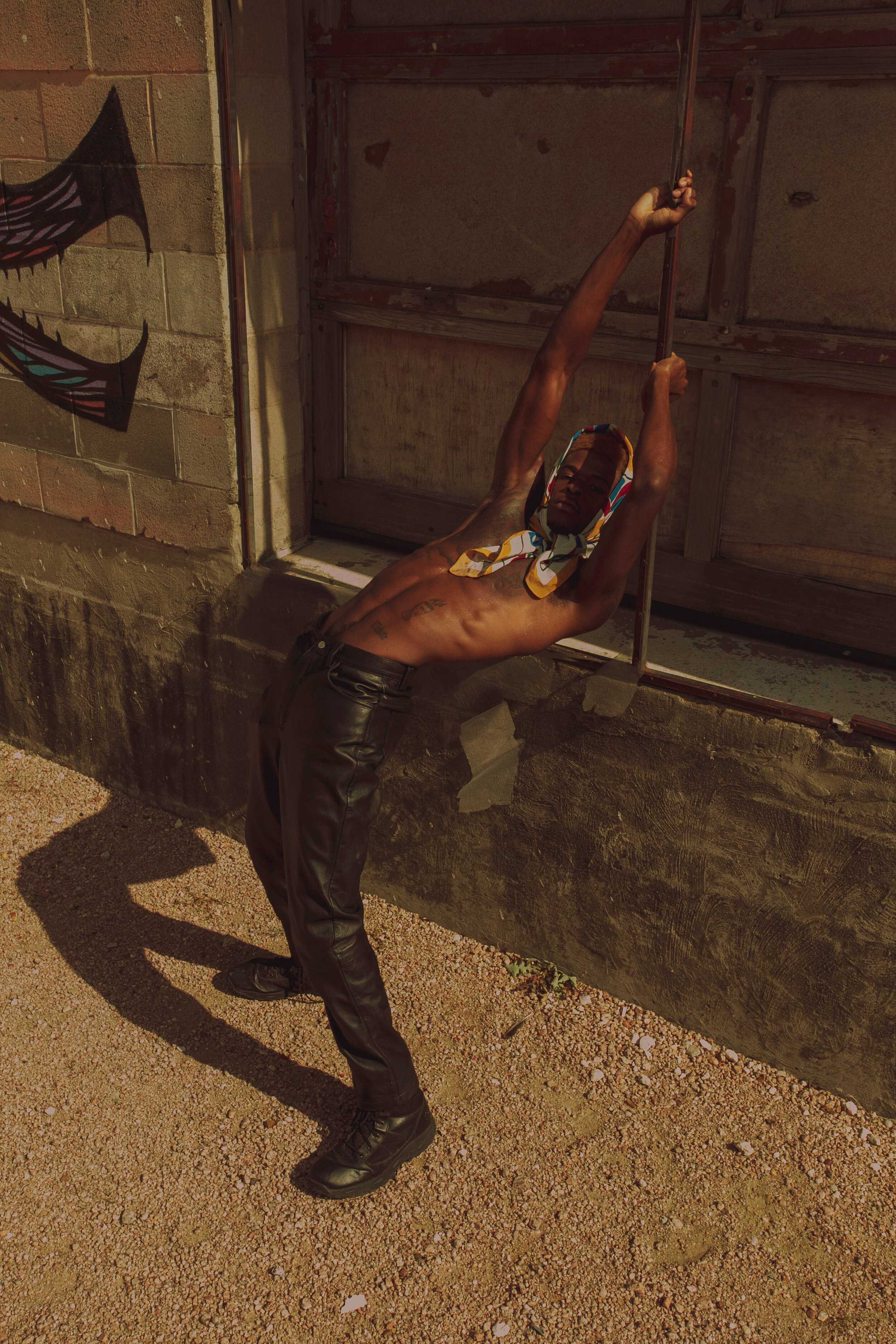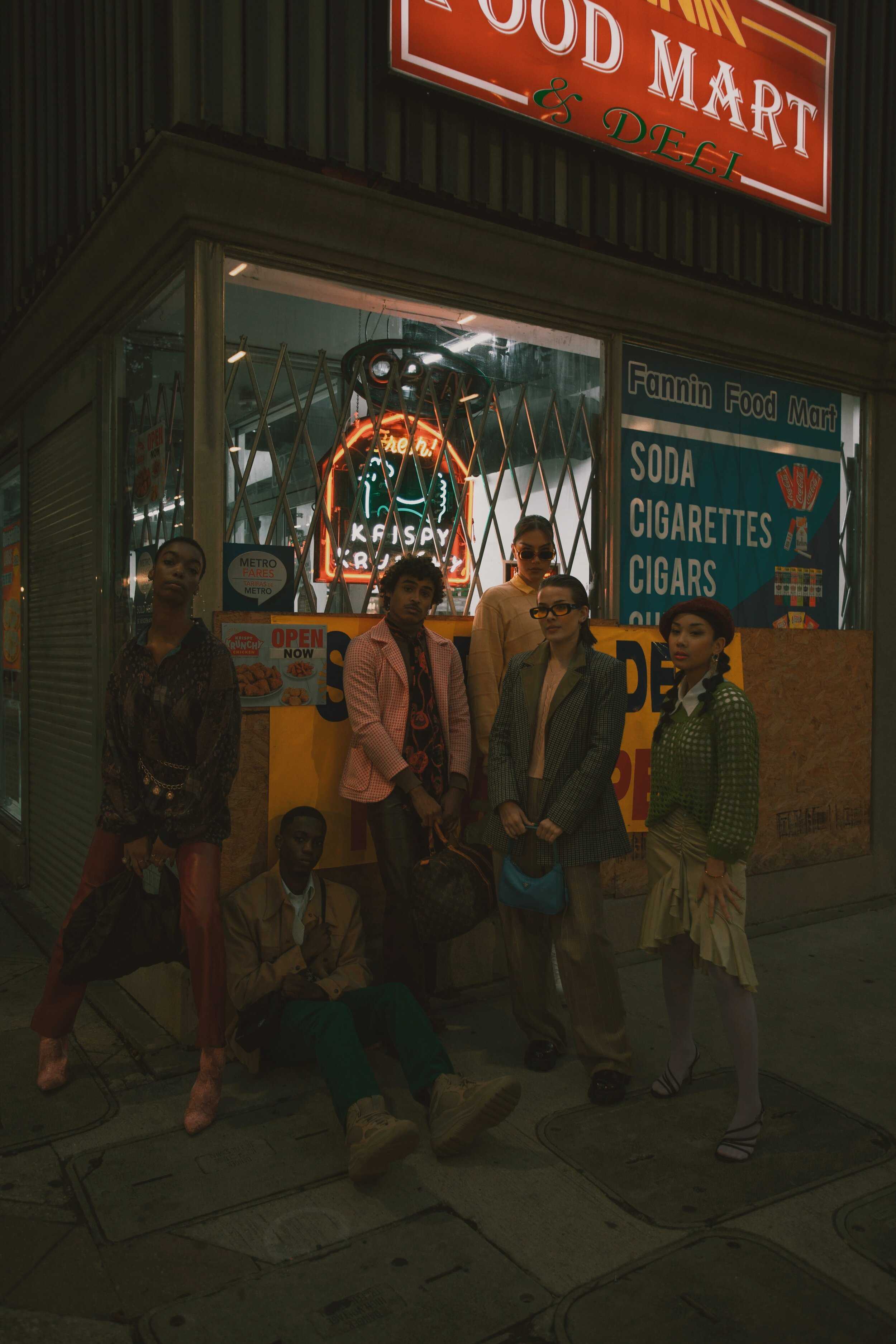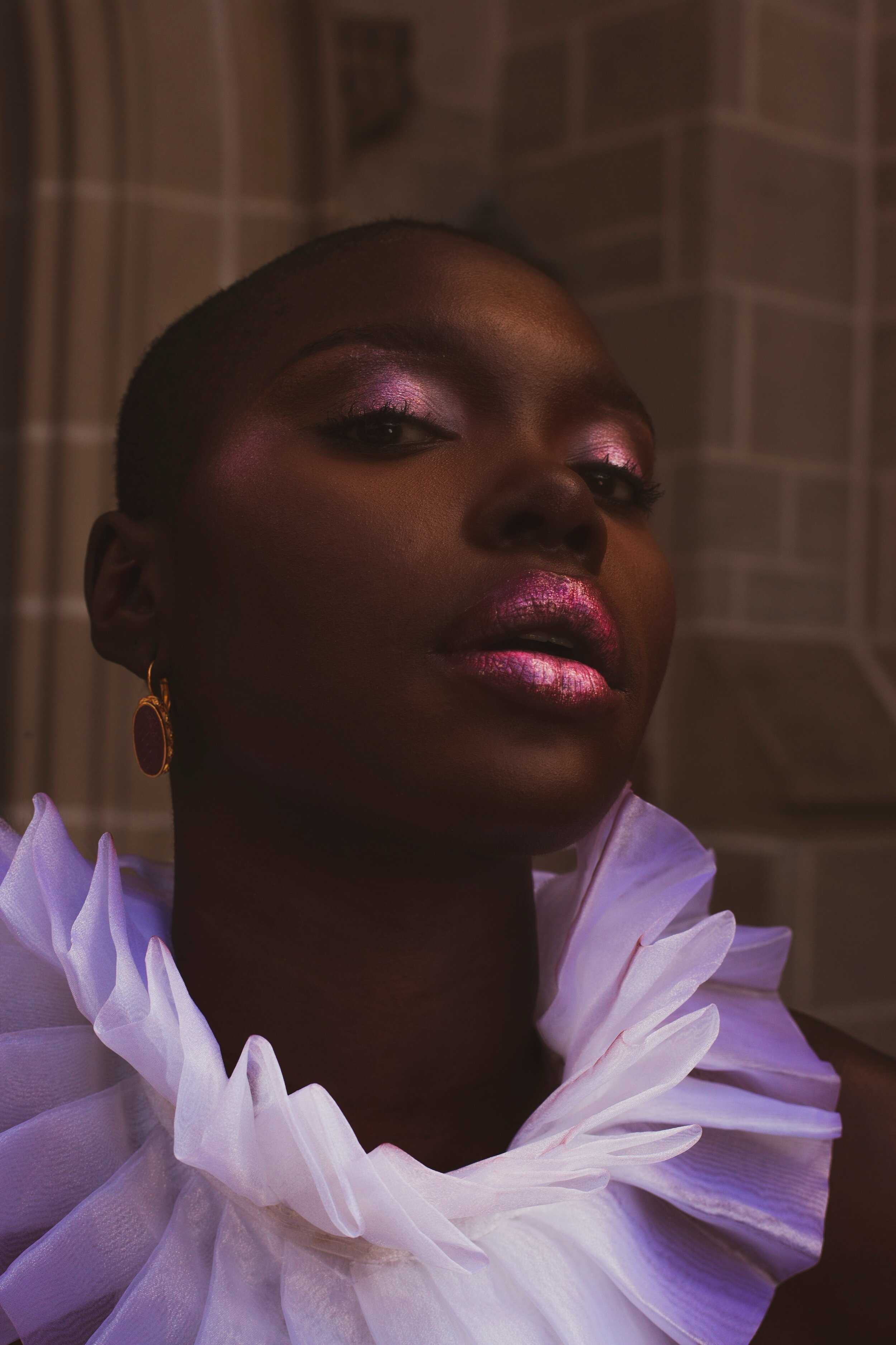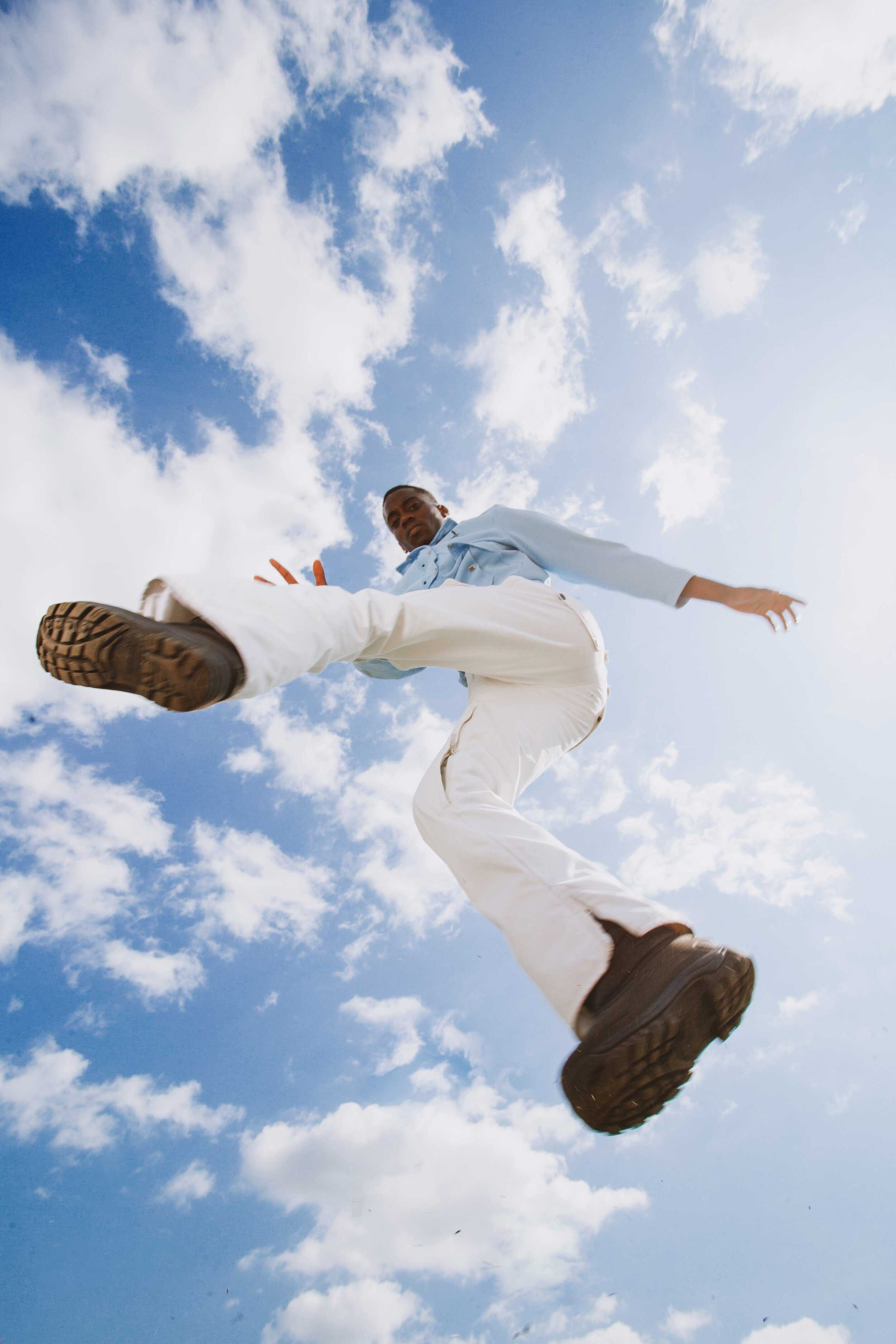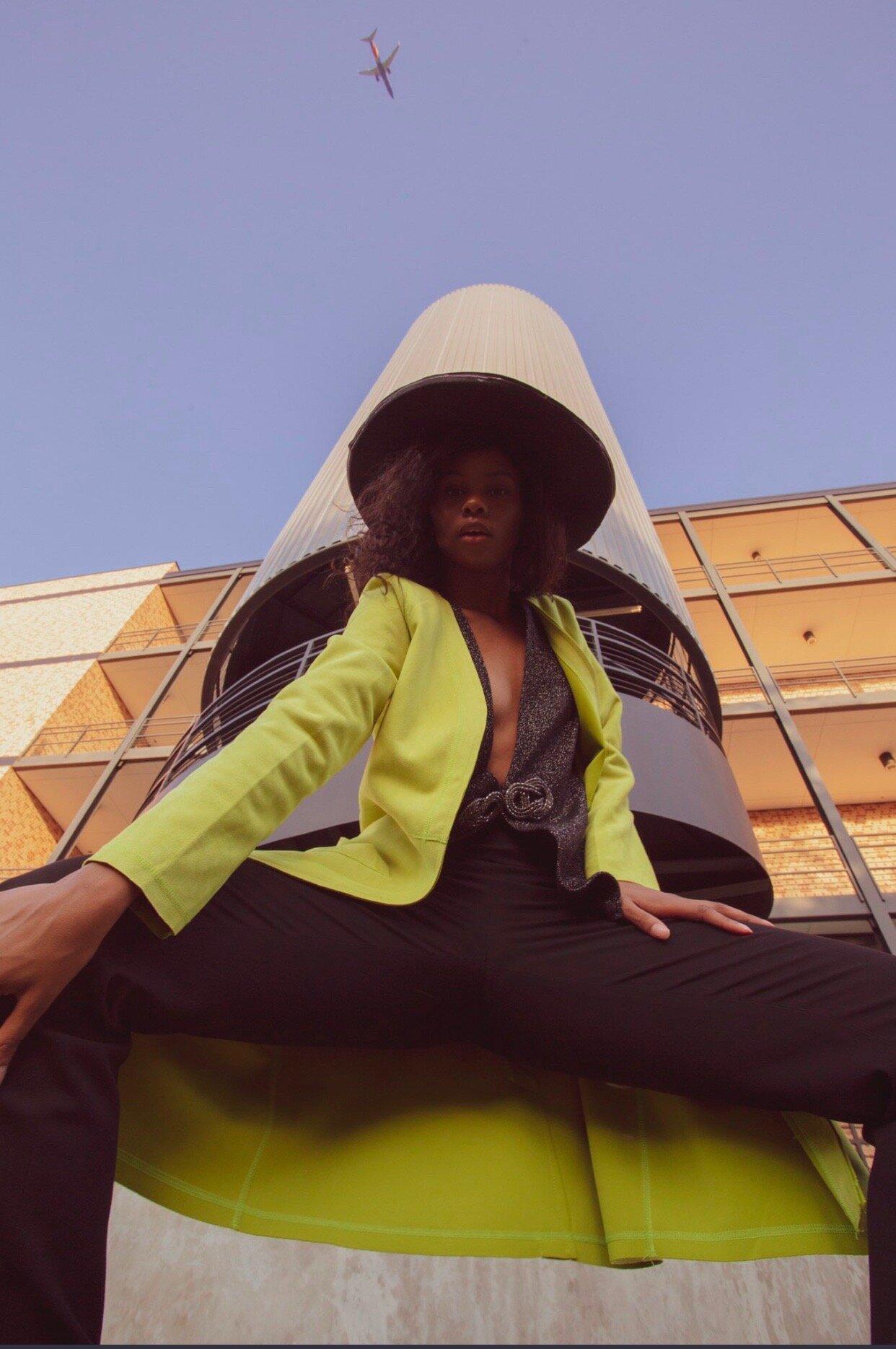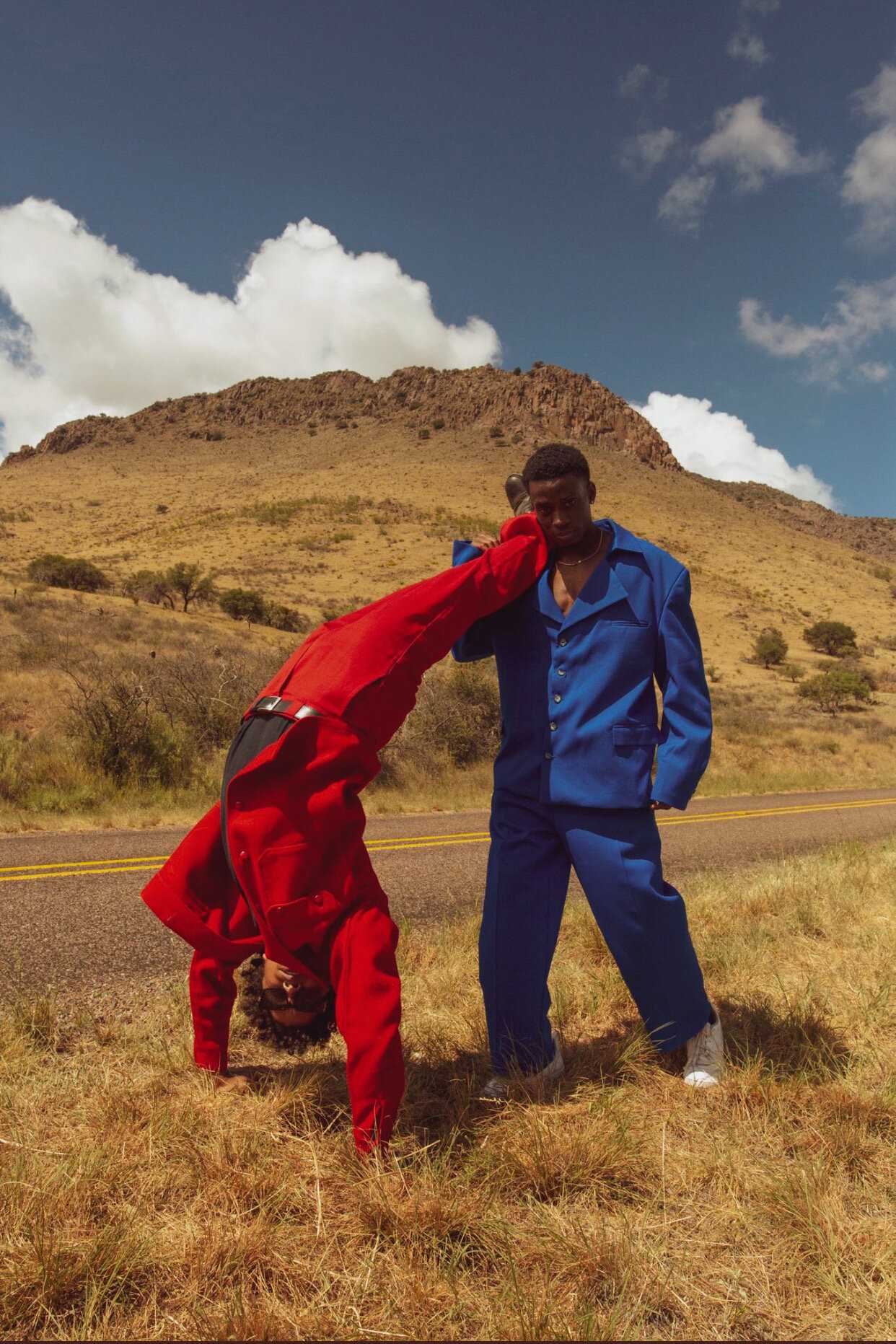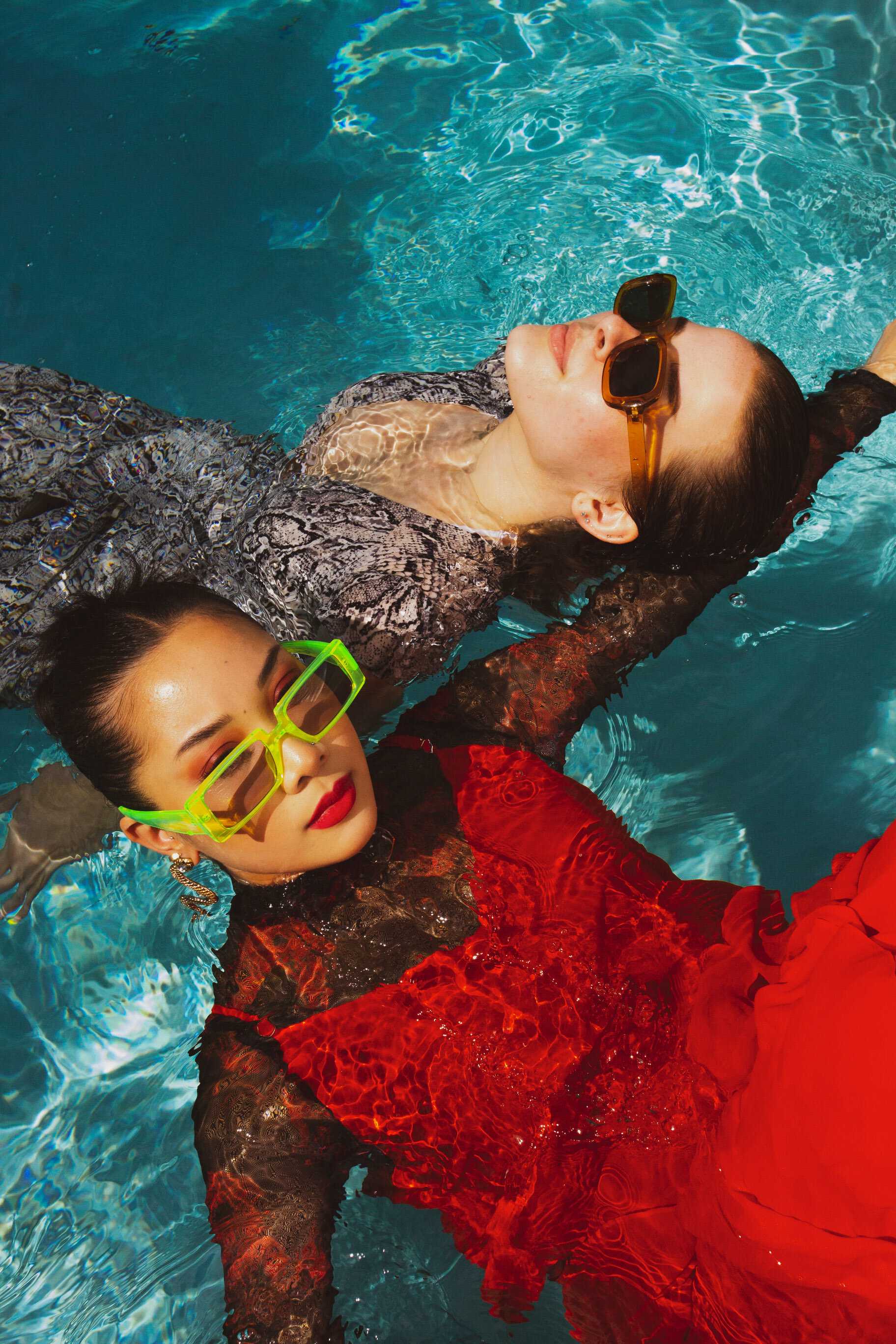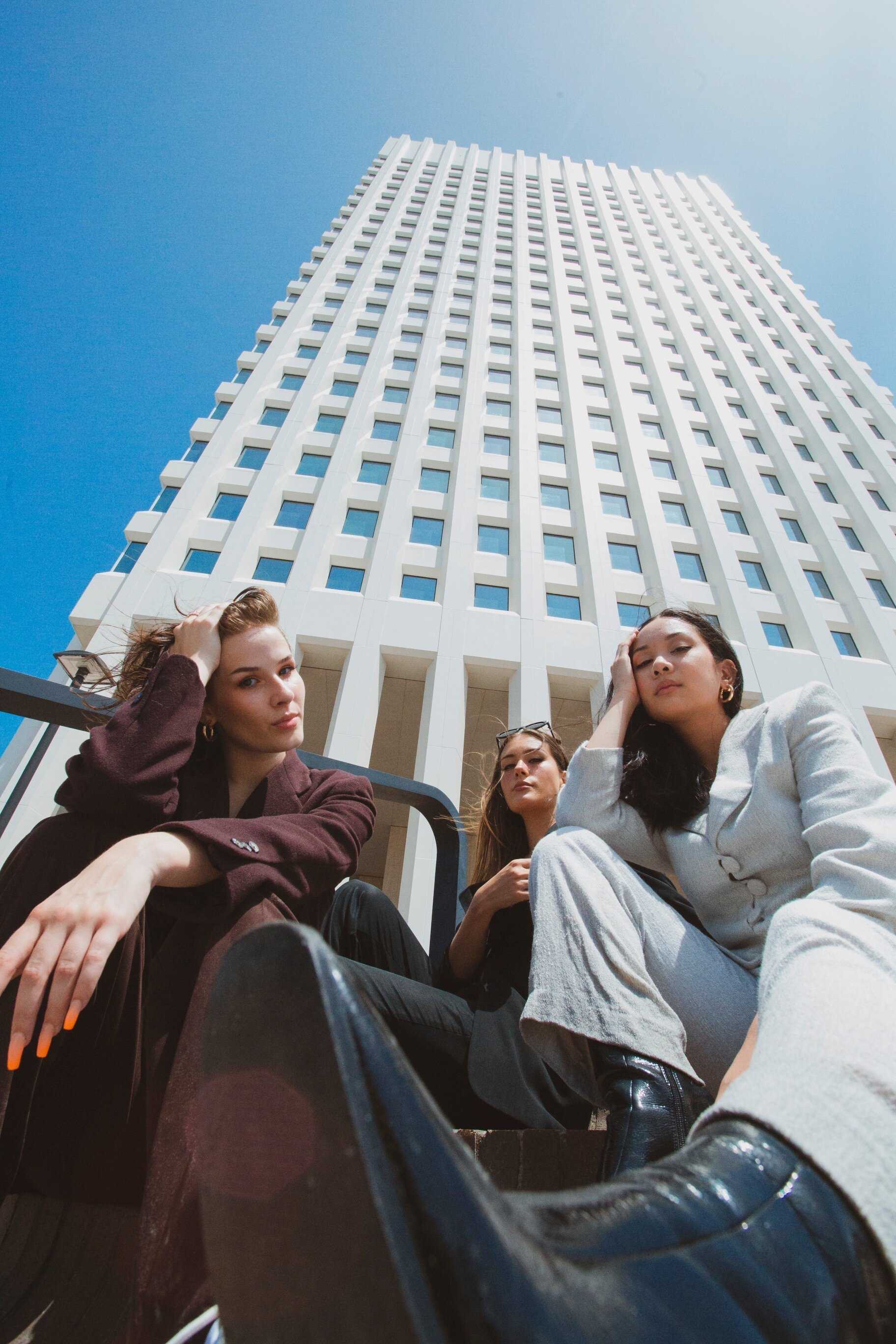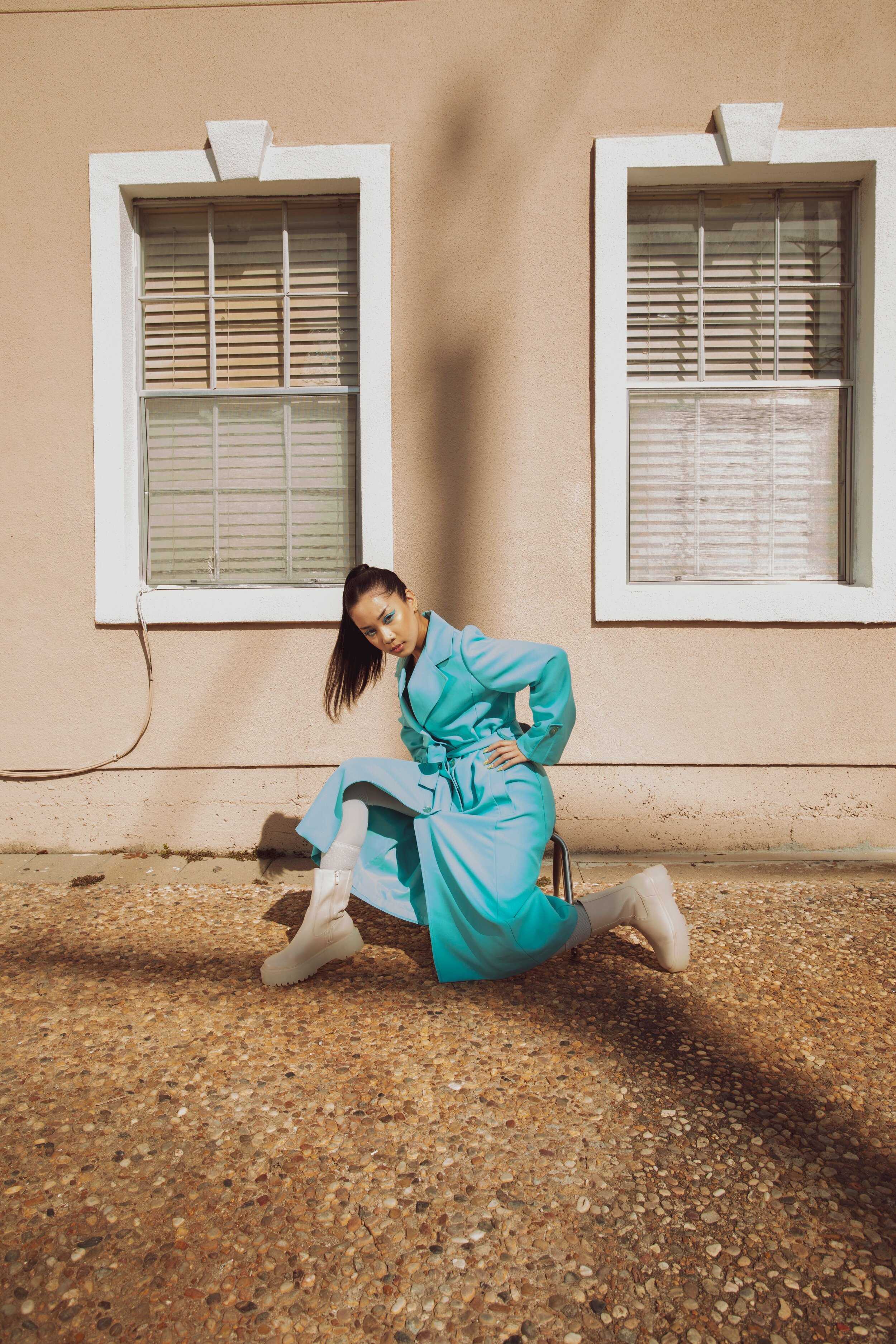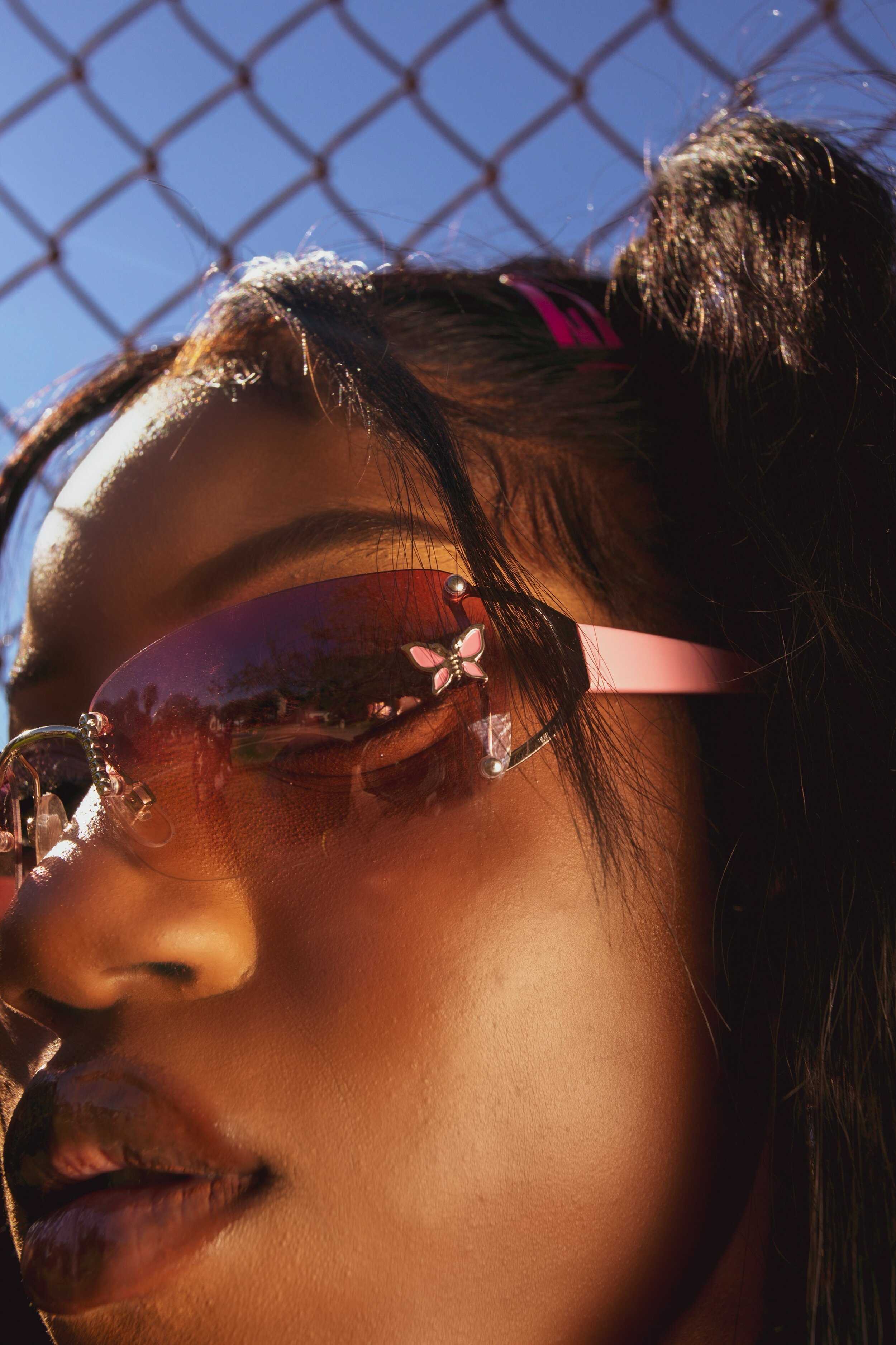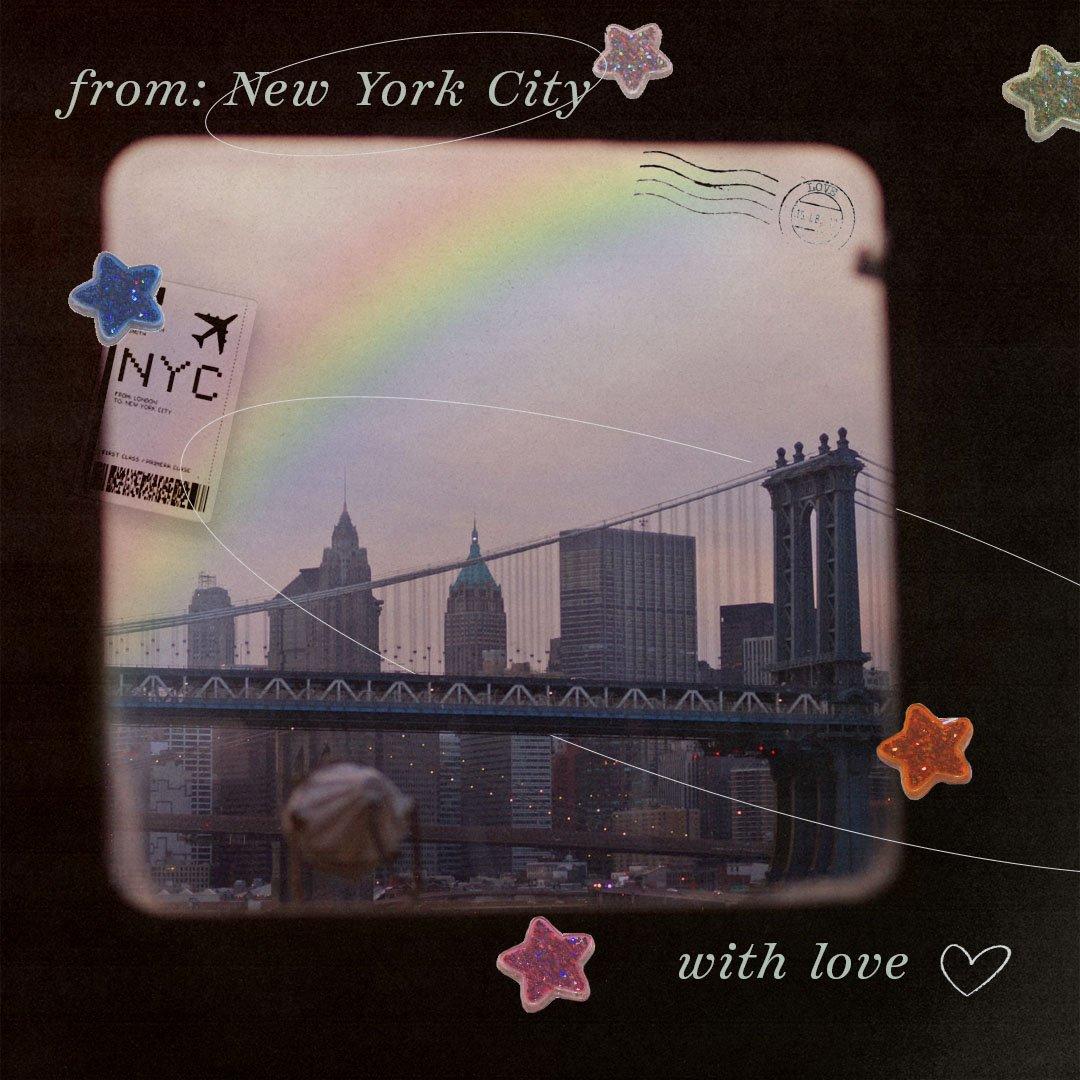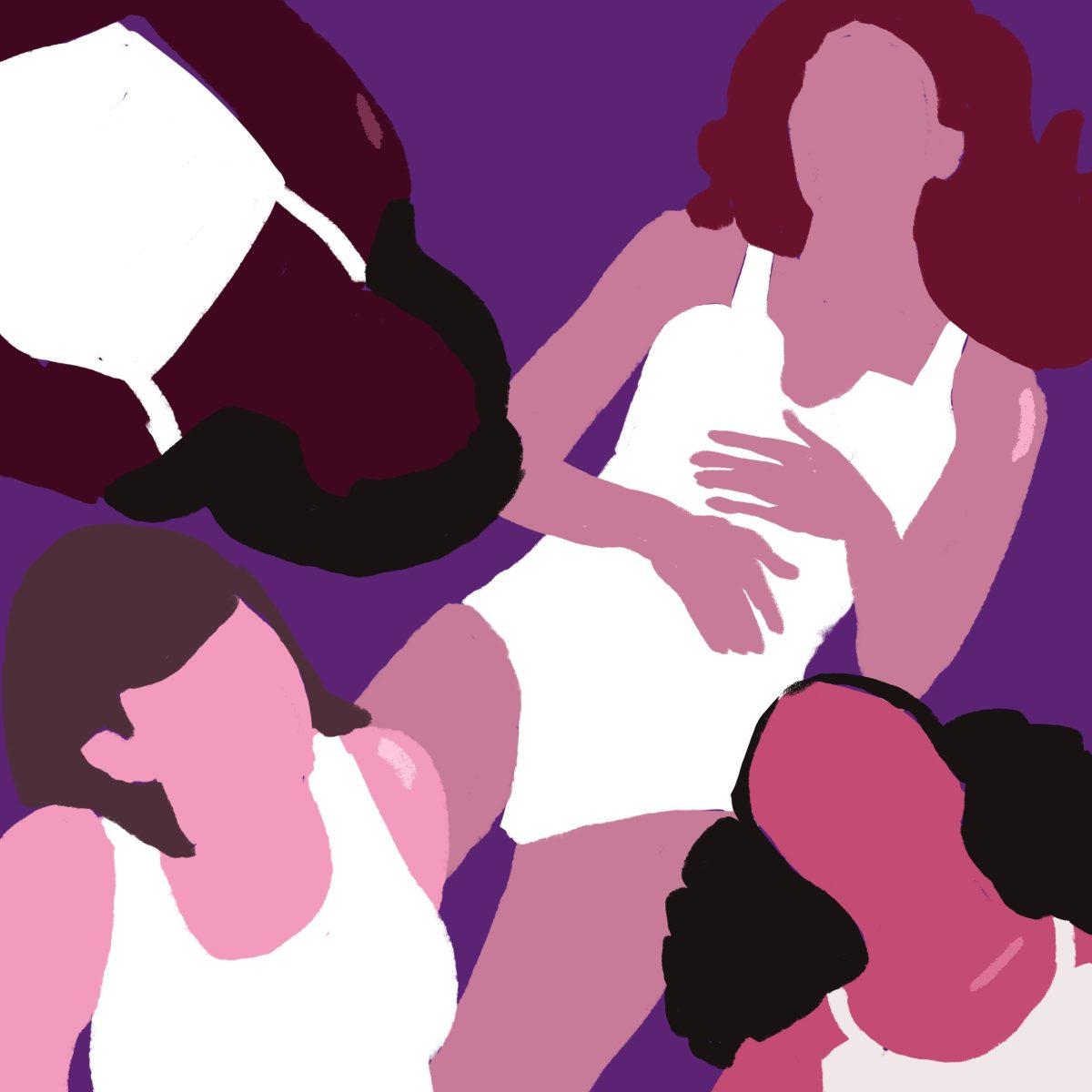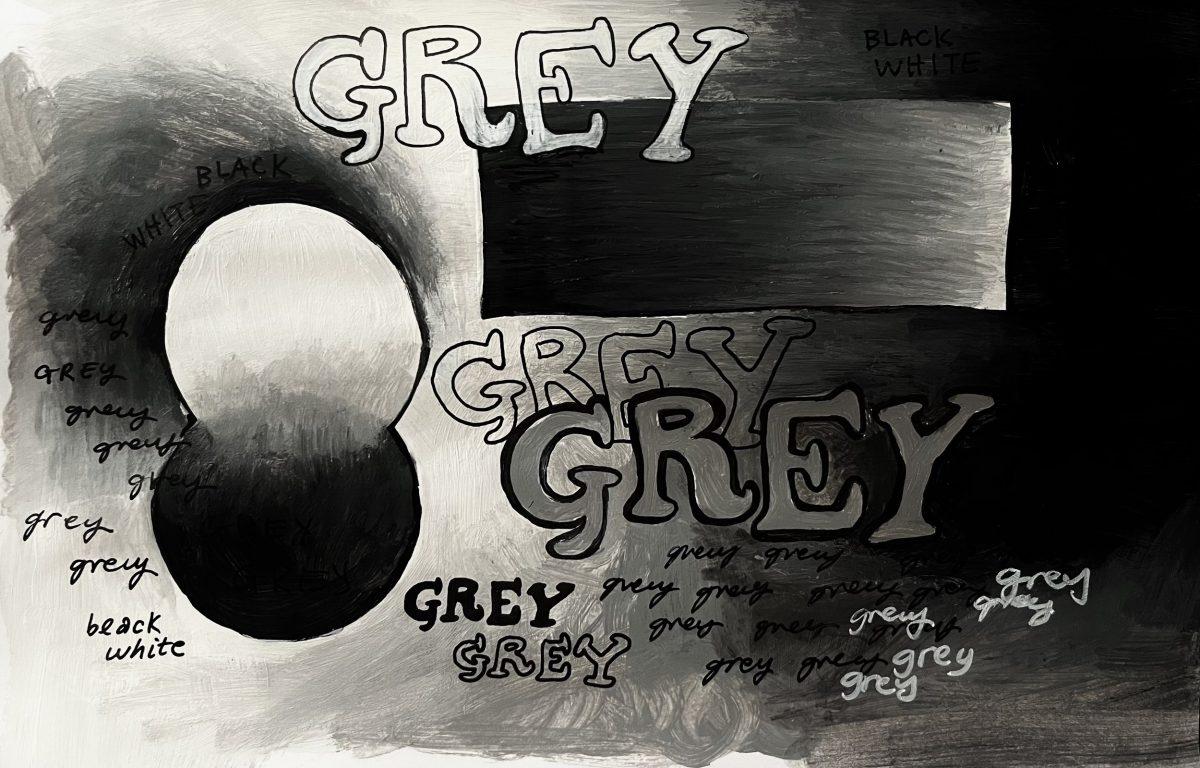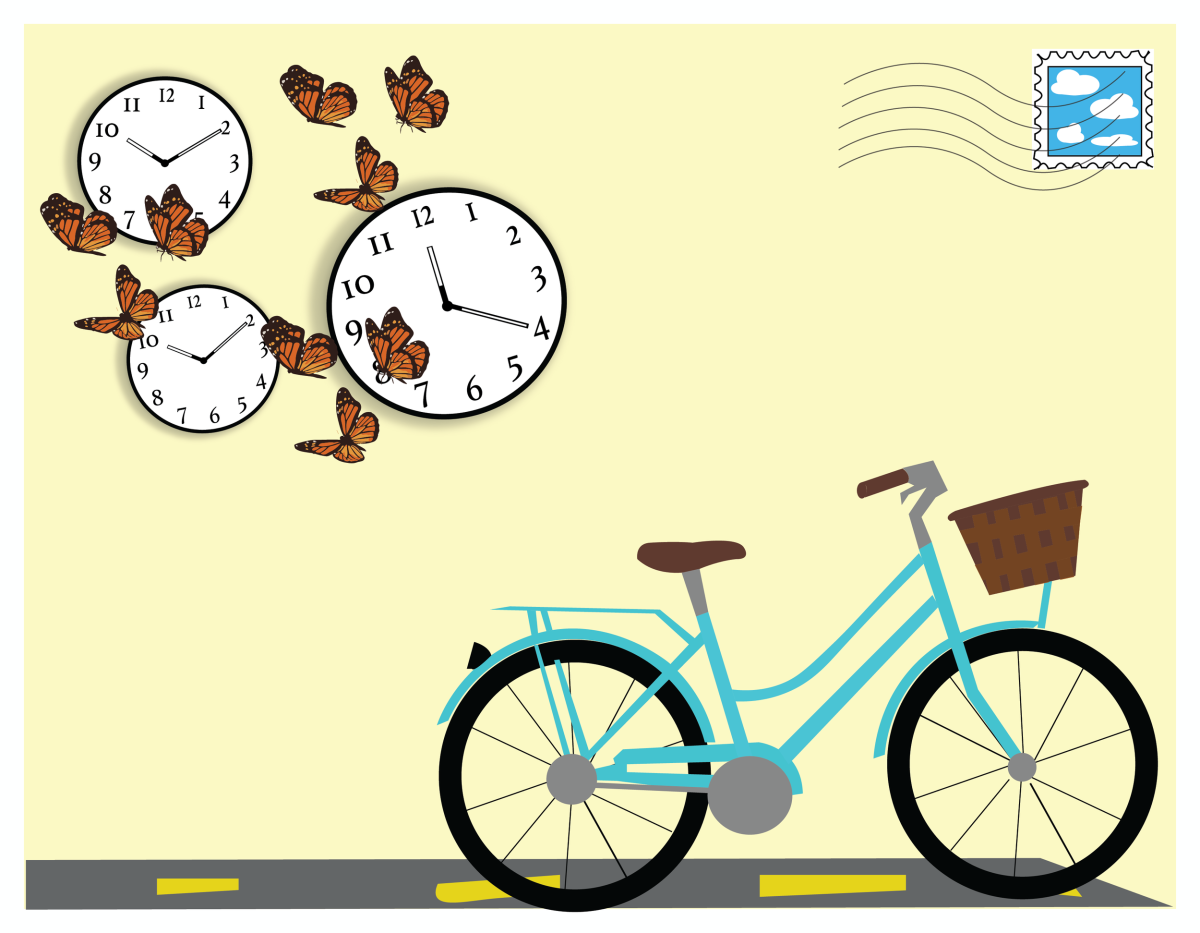Cameron Reed, otherwise known as @camsvisualart, is a 19-year-old fashion photographer from the suburbs of Houston, TX. Here he speaks on creation, self-confidence and ‘coming up’ in the realm of fashion photography.
By Lydia Wagner // @wydialagner // she/her
In Cameron Reed’s at-home workspace, he likes to let loose. Editing photos and blasting music, he’ll occasionally stand just to dance.
“You would think I’m actually making music when I edit,” Reed said. “I just feel like you need to enjoy the process … don’t be stiff. Just be loose with it.”
Photo by Cameron Reed. From left to right, models are Michael Onipede and Antonio Lasanta
Reed’s walls are plastered in printouts of every newspaper and magazine that has ever featured his work. His dresser — covered in Takashi Murakami trinkets and Travis Scott action figures — sits near his three cameras. The first camera Reed ever got, a Canon Rebel T6, is simply a good luck charm now. But he glances at it often, fondly remembering snippets of his journey over the past two years.
A steady evolution in photography has earned him huge success and tens of thousands of followers on social media, as well as features in the Houston Chronicle and even Vogue Italia.
Photography: Cameron Reed. Models: Isabel Gonzales, Antonio Lasanta, Triciajane Asuncion, Hannah Brower, Michael Onipede
Reed’s humility, coupled with his hustle, bleed beyond the borders of his photographs – it feels like innovation and nuance. Reed is redefining what it means to be a fashion photographer and is determined to break labels along the way.
“Labels are for people that have no damn fashion sense whatsoever,” Reed said.
“Labels are for people that need to wake up and read the toothpaste to see how much they should squirt on the toothbrush.”
A former football star — quarterback of his high school team and a member of baseball and track — Reed broke free of that label and quit sports during junior year. He turned to photography to pave his own path in life.
Photography: Cameron Reed. Model: Josh Sowells
“Photography was starting to feel more free to me,” Reed said. “Like it was supposed to be my calling.”
But the transition between sports and art was not smooth. Reed used the lessons he learned through sports to persevere.
“A lot of people had their own opinions on who should play quarterback,” Reed said. “It really affected me. And I didn’t handle it the right way.”
Reed said.“I knew I had the skill, but I let the outside noise get to me.”
Determined to do the opposite with photography, Reed lost friends and faced criticism nonetheless. At home, he struggled to feel accepted by his dad.
Photography: Cameron Reed. Models: Tiana Spencer, Michael Onipede, Antonio Lasanta, Isabela Gonzales, Hannah Brower, Triciajane Asuncion
“My pops – love him to death – and do not think he’s a bad person,” Reed said. “But he was not happy when I quit.”
“He had an attachment to sports because he really saw me having a future there, and I did too – for a long time,” Reed said. “When I chose to do photography, he said that it would take me a couple of years to make it.”
Reed took that advice and worked hard to develop a talent at taking photos. That star-football-player persona still seems to permeate how he approaches his goals with vigor – with this bursting, fiery confidence that almost teeters between majestic self-belief and arrogance. But don’t be fooled by that exterior. Upon speaking with Reed, it’s clear how carefully he treads that line, focusing on remaining humble, but never apologizing for finally believing in himself.
“It’s about how bad you want it. You can do anything. You may not have talent but talent is subjective,” Reed said.
Photography: Cameron Reed. Model: Kellida Jokudu
Michael Onipede, another 19-year-old Houston native, has modeled for Reed in 19 photoshoots, through which the pair grew to be close friends.
“One of the coolest things I’d say I can see from Cam is how his work has evolved,” Onipede said.
Onipede described Reed as “very open, very honest, and very determined.”
“He’s someone who is just consistent … He doesn’t really take that many breaks in terms of shooting or in terms of what he posts.”
Photography: Cameron Reed. Model: Michael Onipede
Reed knows the value of hard work towards a specific goal.
“You can never really replace talent. But that doesn’t mean that you’re worthless because you’re not Michael Jordan out the womb,” Reed said. “I definitely raised my level. To where you can’t just treat me like an average photographer. I’ve worked hard, I rose above the ranks. I was patient.”
Two years after starting photography, Reed’s efforts to build confidence and abandon seeking validation have allowed him to find himself.
“When you don’t know how great you are as a person, you’ll search long and hard to try to find any avenue, any person, any group of people that can validate you. And that’s what photography taught me – that it doesn’t matter,” Reed said.
“I can do whatever I want to do. And I don’t need anyone’s approval.”
Photography: Cameron Reed. Model: Marie Bennett
Now courageous self-belief is Reed’s formula for success. And his star quality might just create a new avenue for superstar photographers.
“People don’t really see us as stars because we just take pictures of other people,” Reed said. “The community says ‘oh well if I don’t have a photographer, I can hire another one.’”
Since Reed wants to be world-renowned, (and known outside of social media,) he knows he needs prestige on his name to build that career.
“You’d be lucky if you’re a Tyler Mitchell or a Gunner Stahl,” Reed said, referencing his two idols in the photography field. “You’d be lucky if you had that ‘you can’t just replace this person’ background or weight on your name.”
Although Reed reveres his photo idols — and has a Gunner Stahl photography book sitting beside his desk at home — he dislikes the ‘copycat’ nature, which he partially blames on social media.
Photography: Cameron Reed. Models: Antonio Lasanta, Michael Onipede
“I used to say ‘yo, this is how I want my photos to look,’ kind of like moodboards. But I stopped that,” Reed said. “I realized that if I can’t even create something from my own mental perspective, then I won’t be able to truly be creative.”
Creation now comes from Reed’s determination to be authentic, and from his raw emotions.
“With my emotions, I kind of really just let them rock,” Reed said.
“I feel like men nowadays – we’re getting corrupted because society will not make up its mind. One moment it’s, ‘you’re a man, you’ve got to be tough, you can’t cry,’” Reed said.
“That’s why so many men today lash out and do certain things that aren’t really helpful and needed towards women,” Reed said. “We have to hide [our emotions] because we think that it will be deemed unattractive.”
Photography: Cameron Reed. Models: Triciajane Asuncion, Hannah Brower
But Reed claims emotion is the true path to creative catharsis.
“Let someone feel. Let someone feel conflicted. Let someone feel sad. Let someone feel unhappy. Let somebody jam out. Just let them be them.”
Today, Reed has a group of close friends that encourage him to pursue his dreams. Many of them are also models, and the group does photoshoots together on a regular basis.
They come up with photoshoot concepts together, thrift together or rummage through their own closets, creating high fashion outfits and then travelling to different locations to shoot together. Reed also shoots with various models he meets through social media and in real life, but he is selective.
“In this industry, a lot of people want to use you for your talents,” Reed said. “So I have a group of models that if I just need to create, I can hit them up, they’re down. We go create art, we do the work, we get it done, and that’s that.”
Photography: Cameron Reed. Models: Hannah Brower, Isabel Gonzales, Triciajane Asuncion
Onipede is in that close group of friends.
“I really appreciate Cam because he’s open to listening to ideas,” Onipede said. “It feels really smooth. Just because I know him … we can just bounce ideas off each other and just get it done.”
After a photoshoot, Reed sits down in his at-home workspace and edits photos before posting them for his followers online. Reed said he has found a sense of community support through social media, but he wants to transcend those platforms.
“I could have 50,000 followers and still not be where I wanna be. That’s why social media isn’t that important to me,” Reed said. “If anything happened and social media was down or we could not access it … I don’t want that to be the end of my legacy.”
Photography: Cameron Reed. Model: Triciajane Asuncion
Reed acknowledged his blessing in creating a large platform. But he wants a tangible career, not a digital one.
“For me, that’s the end goal. To stray away from social media,” Reed said. “I want it to transfer to real opportunities.”
One day, Reed wants to live between L.A., New York, and Paris, working and enjoying life or possibly a family. He wants to be recognized as one of the “best” in the fashion photography world. He wants art galleries and museum exhibits, huge magazine campaigns. He wants prestige behind his name. And those who know Reed believe this will happen for him.
Photographer: Cameron Reed. Model: Eniade Onipede
“I really can’t say what’s about to go down, but [his future] is very bright,” Onipede said. “We say [his work] is going to be big … but I feel like it’s going to be way bigger than we expect.”
That hope is due to Reed’s painstakingly attentive and authentic photo style and artistic identity.
“When you see my art, don’t try to label it,” Reed said. “Just take it for what it is.”
Photography: Cameron Reed. Model: Dana Johnson





